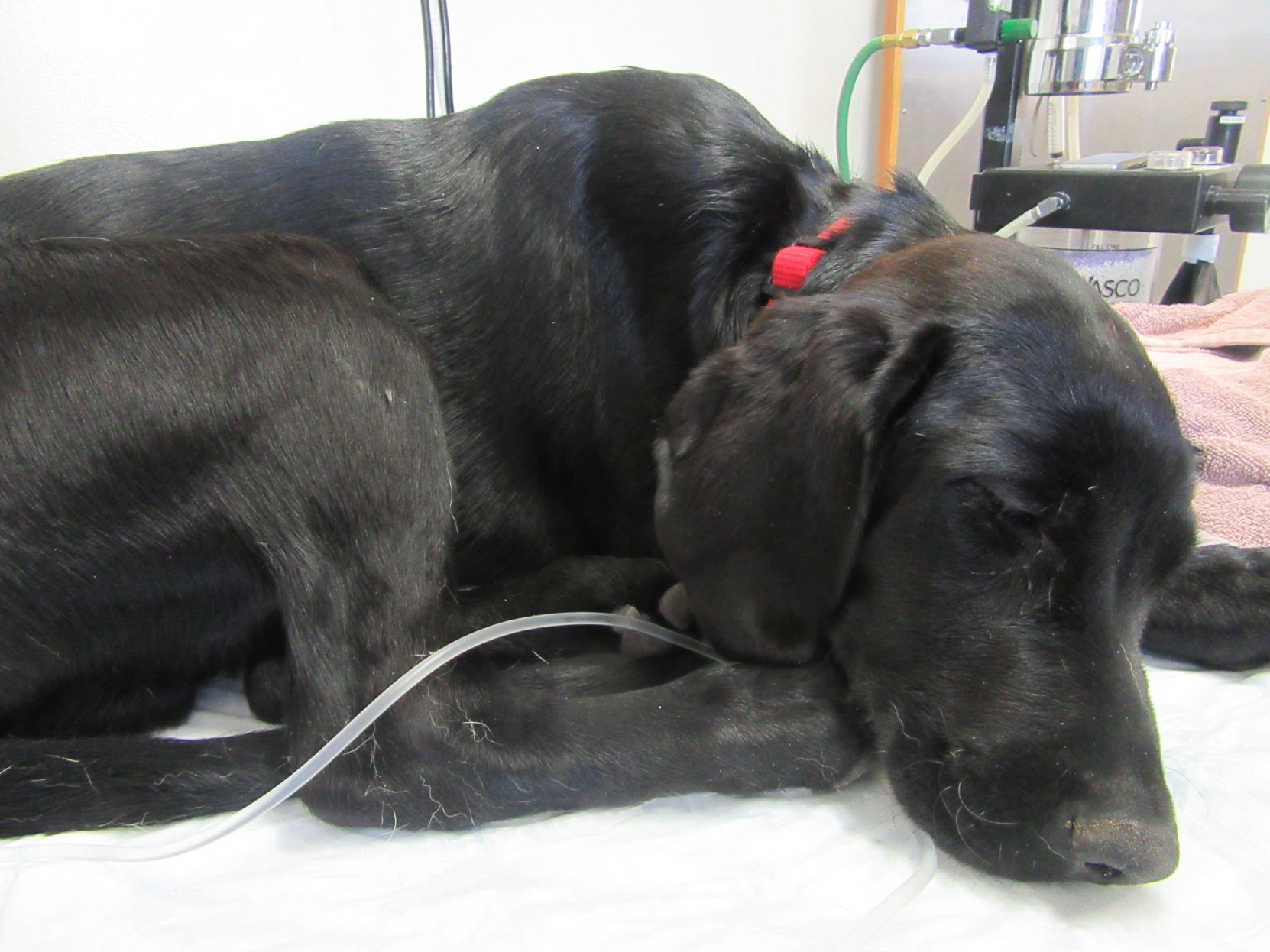Outbreaks of parvoviruses in dogs and cats are causing significant death in Carbon County.
Canine Parvovirus (often simply called “Parvo”) infects unvaccinated dogs. It causes diarrhea and vomiting, which lead to dehydration, blood loss, and ultimately death. Young dogs are most susceptible to infection, but even adults are at risk if they are not vaccinated.
Feline Parvovirus (also called “Panleukopenia”) is closely related to canine parvovirus. It also causes diarrhea and vomiting. Once infected, cats are less likely to survive than dogs. Carbon County’s large feral cat population is a reservoir of infection that leads to major outbreaks several times a year.
Both viruses are highly contagious. The viruses can live for months on contaminated surfaces, and spread easily with casual contact. Unvaccinated females often spread the disease to their litters.
Animal Hospital of Eastern Utah normally sees a parvo case in dogs at least weekly, but in the last seven days there have been twenty-three cases and four deaths. Most of the cases have involved puppies under a year old. Feline parvovirus is normally even less common, but there have been seven cases and three deaths in the last week. Both death tolls are expected to rise as sick animals succumb to the disease and more are infected. Dr. Boyd Thayn at Animal Hospital of Eastern Utah stated, “This suffering and death is preventable. All cats and dogs should be vaccinated to prevent the spread of these diseases”.
“The best way to protect your pet is by vaccinating,” says Dr. Dan Harmer, a veterinarian at Animal Hospital. “The vaccine is highly effective and inexpensive. Treating a dog with parvovirus usually exceeds $600.00.”
Dogs and cats should be given vaccines beginning at six weeks of age. If their mother is fully vaccinated, the offspring are protected by her antibodies until they are old enough to be vaccinated themselves. Dogs and cats need to receive boosters every month until they are four months old. After that, a yearly booster is sufficient.
The vaccinations used by veterinarians are highly effective. If you are purchasing a puppy or kitten, insist that it receives a vaccination at 6 weeks old from a veterinarian, and then stays with its mother until 8 weeks old. If the breeder can’t provide medical records, your puppy will need to be vaccinated again.
Outbreak of parvoviruses strikes Carbon County

IMG_3732.JPG
